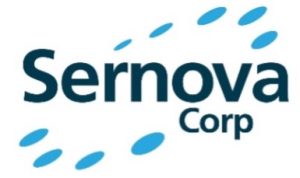Stephie Leung is currently an Associate Scientist at Artisan Biotechnologies. Stephie started her career in cell and gene therapy with GE Healthcare Lifesciences, working at the Centre for Advanced Therapeutic Cell Technologies, a collaboration between CCRM and GE Healthcare in CCRM’s Toronto office. As such, she considers herself a CCRM alumna and is eager to contribute her writing to Signals. Over the years, she has been on the technical team of a multitude of process development projects including scalable stem cell cultures and differentiation, cell characterization assays, gene engineering and lentiviral vector downstream processing. Stephie obtained an M.Sc. from the Department of Laboratory Medicine and Pathobiology at the University of Toronto.
The fast-paced and ever-evolving landscape of cell therapy is difficult to keep up with. Every couple of months, a company announces a new round of financing, an advancement in its therapeutic pipeline, or another strategic partnership forged. In this digital age of information sharing, there are many online sources for the latest industry updates but I have done the homework for you. I’ve rounded up seven Canadian companies to keep an eye out for this year as they continue to make big headlines, with their disruptive technologies, on their road to the clinic. They focus on different clinical indications, and range from early-stage discovery to advanced clinical-stage. Needless to say, I am proud of how they continue to put Canada in the global spotlight for regenerative medicine.
 BlueRock Therapeutics (Toronto, ON. Founded in 2016.)
BlueRock Therapeutics (Toronto, ON. Founded in 2016.)
A clinical-stage biopharmaceutical company and a wholly-owned subsidiary of Bayer AG, acquired in 2019. Their headquarters is in Cambridge, Massachusetts, with additional locations in New York, New York, and Berlin, Germany. BlueRock’s cell and gene technology platform tackles neurology, immunology, cardiology and ophthalmology diseases. BRT-DA01 is the leading cell therapy product and has completed Phase 1 clinical trial enrolment for Canadian and American patients. Stem cells are used to create neurons that produce dopamine to treat patients with Parkinson’s disease. The safety, tolerability, cell survival and effectiveness of BRT-DA01 were assessed, with results to be announced in the latter half of 2023. BlueRock is a giant in this space, with a whopping 400+ employees and counting, as they expand their departments to accommodate their candidate development and clinical trial needs.
 ExCellThera (Montreal, QC. Founded in 2015.)
ExCellThera (Montreal, QC. Founded in 2015.)
CCRM supported the launch of this advanced clinical-stage company. They have developed a proprietary molecule, UM171, which is used for ex vivo (outside of the living body) blood stem cell expansion and rejuvenation. This is a great example of a company that has a commercial license with UM171, and is concurrently using the molecule to develop its own clinical product. Using UM171, ExCellThera’s most advanced cell therapy uses cord blood cells to combat leukemias. It has recently completed patient enrolment in Canada and the United States for Phase 2 clinical trials. Other preclinical phase programs include expanded bone marrow and mobilized blood cell therapy.
 Hemostemix (Calgary, AB, and Montreal, QC. Founded in 2006.)
Hemostemix (Calgary, AB, and Montreal, QC. Founded in 2006.)
A publicly traded clinical-stage company with a global portfolio of 90+ patents. These technologies are centred around using the patient’s own blood stem cells to create blood vessels, brain and heart precursors, otherwise known as autologous therapy. These have applications to arterial and cardiovascular disease. The leading cell therapy product for the treatment of critical limb ischemia is currently in a Phase 2 clinical trial in Canada and the United States. Another cell therapy product in their pipeline targets nervous system conditions. They also have plans to spin out a revenue-generating, Phase 3 clinical trial-ready company in the future.
 Notch Therapeutics (Vancouver, BC, and Toronto, ON. Founded in 2018.)
Notch Therapeutics (Vancouver, BC, and Toronto, ON. Founded in 2018.)
An early-stage cell immunotherapy company developing T cells and other immune cells from stem cells belonging to a donor, via notch signalling, a pathway that is critical to cell development. Among this list of companies, it is the newest kid on the block so it is not surprising that their therapeutic products are at the discovery and preclinical stage, targeting solid and hematologic malignancies, and autoimmune diseases. The leading therapy in development is in collaboration with Allogene Therapeutics to produce cell therapies for non-Hodgkin lymphoma, leukemia and multiple myeloma. Notch was the first graduate from CCRM’s internal company incubation program and has now grown to a third site in Seattle, Washington. It embodies a success story of how CCRM spun-out this company after identifying and validating the technology, developing the business plan, and forming strategic partnerships to raise seed funding.
 panCELLa (Toronto, ON. Founded in 2015.)
panCELLa (Toronto, ON. Founded in 2015.)
This is another early-stage company that CCRM helped launch, which provides clients access to their platform technologies: induced Allogeneic Cell Tolerance (iACT) Stealth Cells® and FailSafe®. iACT Stealth Cells® are engineered to avoid rejection by the immune system after transplant. FailSafe® introduces a suicide gene on the chromosome to control cell proliferation, thus ensuring safety for the patient. In October 2022, they merged with Pluristyx and Implant Therapeutics, with panCELLa becoming a wholly-owned subsidiary of Pluristyx. The combined portfolios expand their intellectual property and services for gene-edited stem cells to accelerate customers’ cell therapy commercialization. This three-way merger is an indication of growth and promise for panCELLa’s capabilities and we should expect more exciting news from them.
 Sernova (London, ON. Founded in 2006.)
Sernova (London, ON. Founded in 2006.)
A public, clinical-stage company with a focus on improving the quality of life of patients with chronic diseases, specifically diabetes, hemophilia and thyroid disease. They have developed a proprietary implantable medical device known as the Cell Pouch,™ which protects therapeutic cells from the patient’s immune system and supports cell function simultaneously. It is organ-like, vascularized and scalable. The Cell Pouch™ is in a Phase 1/2 clinical trial in American patients for clinical islet transplantation for diabetes. In May 2022, Sernova partnered with Evotec for the development of Cell Pouch™ to support beta cell replacement therapy for type 1 diabetes.
 Turnstone Biologics (Ottawa, ON. Founded in 2015.)
Turnstone Biologics (Ottawa, ON. Founded in 2015.)
A clinical-stage company that is developing tumour infiltrating lymphocyte (TIL) therapy, a type of white blood cell that migrates from the blood into a tumour. Turnstone’s technology identifies, selects and expands the patient’s own tumour-reactive T cells, which helps recognize and kill cancer cells. Headquartered in San Diego, California, its cancer immunotherapy pipeline contains several programs targeting melanoma, and cancers of the breast, colon, cervix, head and neck, and lung. TIDAL-01 is the most advanced candidate and is in a Phase 1/2 clinical trial for advanced solid tumours. In combination with TIL therapy, Turnstone is also developing viral immunotherapy, which uses viruses to help move the TILs to the tumour while modifying the tumour microenvironment to support TIL functionality.
With so many companies forging ahead into the realm of clinical trials, we can anticipate cell therapy becoming a common mode of treatment in the next decade. Cell-based medicines will take their rightful place alongside traditional small-molecule drugs in a clinician’s arsenal of disease-fighting agents. The potential applications of cell therapy are endless, as are the businesses that are popping up to commercialize this technology. While it is easy to get caught up following the headlines and press releases as companies race to the clinic, at the end of the day we should remember that the patients are the real winners because their pool of therapeutic options is becoming more diverse and advanced with each new cell therapy that gets approved by health authorities.
Guest
Latest posts by Guest (see all)
- Regenerative immunotherapy: Hope for chronic autoimmune diseases - September 16, 2025
- Canada’s regenerative revolution: Why AI is the catalyst - September 4, 2025
- Summer by Design: A launchpad for future entrepreneurs and industry scientists - August 14, 2025






Comments